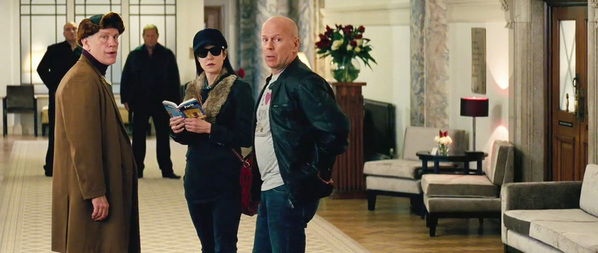 With Red 2, the sequel to underrated action comedy, we find retired black-ops agent Frank Moses reuniting again with his group of presumably over-the-hill operatives who must track down a missing nuclear device before it causes unthinkable destruction. Dean Parisot's Red 2 is a serviceable sequel to its predecessor but it lacks the uniqueness and overall story needed to make it something special. Like most sequels, Red 2 attempts to expand its story and become much more epic in scope. With this film, we follow our heroes all over the world but with the scale, the film feels much more convoluted and generic than its predecessor. All of the talent effectively slips back into their roles, with John Malkovich and Helen Mirren once again providing a lot of the comedic relief. Anthony Hopkins is a fun addition as well, and the twist that unfolds following his character was somewhat surprising. The character dynamics between Frank Moses and Sarah Ross are pretty much the exact same, with Sarah being routinely thrown into situations where she is completely in over her head. Red 2 isn't a bad film by any means, but the sequel just feels terribly by-the-numbers not really doing much to make it a stand alone success. 5/10
0 Comments
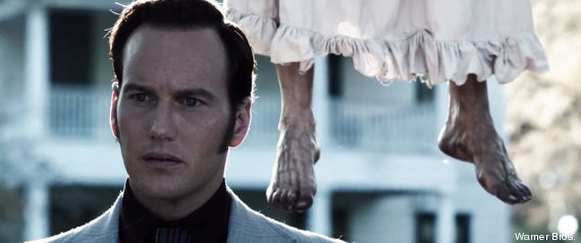 Ed and Lorraine Warren are world renowned paranormal researches, who investigate various entities which they believe to be from the spiritual world. When performing a seminar at the local college, the couple is confronted by Carolyn Perron, a mother of five, whose family is being terrified by a dark presence. James Wan's The Conjuring is a well executed horror film that goes about its scares in a much more genuine way, reminiscent of horror films from the seventies and eighties. While so many films these days rely on either gore or jump scares, The Conjuring recognizes that atmosphere is key in creating a lasting impression on its audience. The Conjuring storyline is nothing new or unique, but James Wan does a fantastic job at telling this story and letting it unravel much more organically than most films with similar subject matters. The film does a great job at givings its character's depth, a common problem with the genre, while also showing a surprising amount of tenderness for the various character's plights. The audience is able to grow attached to these characters because of this, making the film much more effective, especially during its intense finale. We spend nearly equal time with both the Perron family and the Warrens, which seems to just raise the stakes even more for everyone involved while also making no character feel expendable. This could be Wan's best directed film to-date, with some fantastic imagery throughout the running time, using various lenses that really elevated the suspense while evoking mood and tension. The combination of the emotional resonance the film was able to achieve with great cinematography make The Conjuring one of the best mainstream horror films in years. 8/10 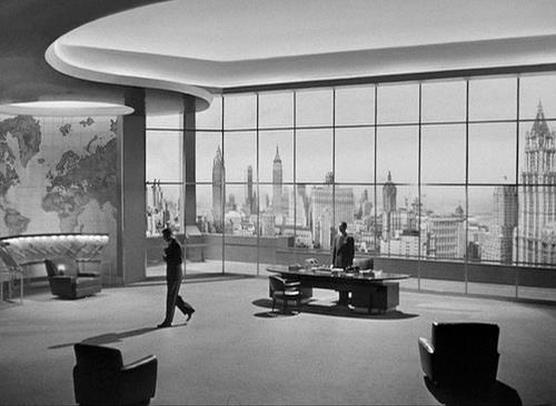 The Fountainhead is an epic melodrama about how creativity, individualism and society all intersect among each other in the world we know. The film has a lot of problems from the dialogue feeling awkward and unnatural at times, to the early romance between Roark and Dominique Fancon feeling silly and abrupt. Heck, the simple fact that everything in this film is gloriously stated in a grand sort of way is something I found bothersome, yet ultimately, this is still a pretty strong film. The lighting and cinematography is what really stood out for me about The Fountainhead, being that it is very impressionistic and intense throughout the running time. The visuals and mood of the piece are able to really create this great sense of "the Urban Jungle" which the characters inhabit to a degree that I don't think I have ever seen before. An obvious example of this would be Gail Wynand office, with it's gigantic windows which showcase the city below in all its glory. Fountainhead is without a doubt heavy handed to the point that the film feels campy from time to time, but it really does have a great message and the finale, where Howard Roark rambles off a long monologue about how important individualism has been in terms of innovation is what sold me. Touching on the relationship between how being a visionary usually means one is driven by their own merits is interesting, especially how society tends to have a grossly negative viewpoint, deeming this selfish. King Vidor's The Fountainhead suffers from a lot of the typical faults of older melodramas, feeling hamfisted at times, but the themes and discussions the film provides have a lot of merit. 7.5/10 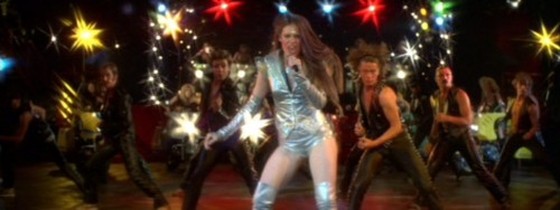 Taking place in a dystopian future (1994), The Apple shows us a world where society lives under the totalitarian rule of the music industry. All citizens across the world must sport a "bim mark" at all times as well as break into dance for an hour every single day. The head of this industry is Mr. Boogalow, a Satan-type character who controls everything. Enter Bibi and Alphie, a naive couple from Canada who fall head first into the grasps of Mr. Boogalow's record label. While Alphie is suspicious of Mr. Boogalow's contract terms and overall intentions, Bibi leaps at the chance to become a pop star. Menahem Golan's The Apple is a film which certainly fits in the 'so bad it's good' category, but that doesn't mean the film doesn't have moments of artistic intention from its director. Being made in the late 70s, during the fall of the disco phenomenon and rise of pop music, The Apple takes this assertion to the extreme. The narrative tropes are all incredibly exaggerated from the nativity of Bibi being over-the-top to Mr. Boogalow's almost devil like appearance. The way the production design futurized the movie is quite hysterical too. Basically they took everything they had, added shiny bright lights, glitter, and 70's fashion that has been pushed to the extreme. It's incredibly tacky but gloriously fun to examine. Out of everything, Vladek Sheybal's portrayal of Mr. Boogalow was the highlight of the film for me, clearly having a lot of fun delivering a hammy, over-the-top performance. This is an insane film that is hard to describe, even venturing into spiritual themes to make its statement. Menahem Golan's The Apple is silly, stupid, and charming, easily being one of the oddest musicals cinema has ever produced. 7/10 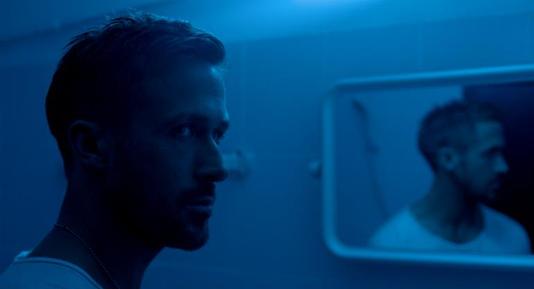 Julian runs a Thai boxing club in Thailand, but his real income comes from a drug smuggling ring operated with his brother Billy. When Billy is suddenly murdered, their crime lord mother, Crystal, arrives in London to bury her first born son. Crystal vows vengeance on the man responsible for Billy's death, forcing Julian to seek out and destroy the man responsible. Nicholas Winding Refn's Only Good Forgives is a moody, hypnotic experience that very much could be his most accomplished film to-date. This is a far less accessible movie than Drive that is some sort of blend of Seijun Suzuki and Powell & Pressburger. Much of the criticism levied at Only God Forgives is that it's superficial or another example of style over substance but that couldn't be farther from the truth. What I find interesting is so many people don't realize that this is narrative that has been told a thousand times before but Refn tells it in a truly unique way. This is a film about a man whose been born and raised in a harsh environment where all he knows is death and violence. Refn does a fantastic job at capturing Julian's psyche, showing the perversions that exist in his mind, warping everything he sees into death and despair. Julian is forced into being something he is not by his overbearing mother, leading him to feel ashamed and guilty of the violence he has committed. This story follows the tradition of silent films, relying on very little on dialogue, with nothing being specifically told to the viewer but rather presented to them in a completely visual way. Like all of Refn's films the cinematography is outstanding with nearly every composition evoking mood. I loved the use of symmetrical framing throughout the film which could be commenting on how similar both Julian and Mai, the man responsible for Billy's death, truly are. The use of symbolism towards the end of the film really resonated with me, where Julian reaches into his mother's deceased body as if he is trying to feel a warmth from her instead of the cold demeanor he has known his whole life. For me, Nicholas Winding Refn's Only God Forgives is an incredibly spiritual experience about a man whose had blood on his hands his entire life and is finally able to be set free and it could be my favorite film of his to-date. 9/10  I've always been highly critical of the documentary genre. I believe it's a genre which, at times, breeds lazy filmmaking, at least from an artistic point-of-view. Many documentaries simply need to tell a compelling story to be praised, but personally, I want more than just the re-telling of a compelling narrative. Don't get me wrong there is certainly value in bringing such a story to the masses through the documentary platform, but the artistry behind the camera is sometimes severely lacking. This couldn't be farther from the truth when talking about Lucien Castaing-Taylor & Verena Paravel's Leviathan. The most banal way possible to describe this film is that it's a documentary about the commercial fishing industry, but that is selling this film extremely short. This film is an engrossing examination of a commercial fishing boat, displaying a piercing eye for detail, that guarantees it's like nothing you have ever seen before. With absolutely no dialogue, at least audible dialogue, Leviathan captures the various tasks and day-to-day activities which make up this profession. The film isn't interested in introducing the characters or letting the viewer get to know them but instead it has much grander ambitions. Leviathan sets out to capture the clash between nature, man and machine while simultaneously showing the collaboration between these forces which are forced to co-exist. It's funny to me that this film has been dubbed as experimental by so many, as if anything that doesn't rely on talking heads fits this description. The film is gorgeously composed, capturing the beauty and ugliness of this world while simultaneously disorienting the viewer in an effort to show the rugged life at sea. If I had one complaint about Leviathan it would be in regards to its length. Some will certainly find the film tedious and slow, and I wonder if making it closer to 60 minutes could have made it more effective. Either way, Leviathan is a great piece of documentary filmmaking that reminded me a lot of another great documentary in 2012, Denis Côté's Bestiaire, as both films rely entirely on visuals to make rather profound commentaries on aspects of the clash between man and nature. 8.5/10 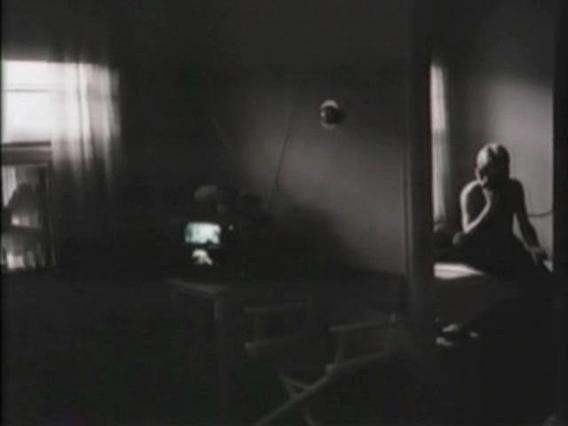 Of all of Jost's films I have seen, Last Chants for a Slow Dance seems to be most character-centric film. The film is about Tom, a loner type character who seems to lack any real desire for emotional connection. This is definitely the most despicable character in a Jost film I can think of, and Tom Blair does a great job at capturing this man's desperation and overall terrible demeanor. The scene where Tom cheats on his wife is without question the best scene in the film. The use of the TV in the background as a sort of commentary on love and lust, coupled with the aftermath where Tom argues with his wife about her lack of support while the other woman sits in the adjacent room waiting, is a very powerful sequence. While I do think Jost's style fit some of his other films much more, the lingering camera does work well at soaking in this isolation and loneliness which exists in many of the characters, even Tom, though his aggressive nature really left me feeling little to no sympathy for him. Being that this is like Jost's road movie, there are also a few great scenes where Tom is on the road, the camera just films the passing country-side or roadway, capturing how Tom's life is essentially nothing outside of the open road, where he seems to find some form of solace. From what I could tell, Last Chants is designed to be a scathing commentary of the macho-psyche, which is celebrated in middle/southern America. Tom is a man who fulfills this archetype and yet we see how ugly and lonesome he truly is. Last Chants For A Slow Dance is probably my least favorite of Jost's films I have seen, but it's still definitely interesting and worth a watch. 7.75/10 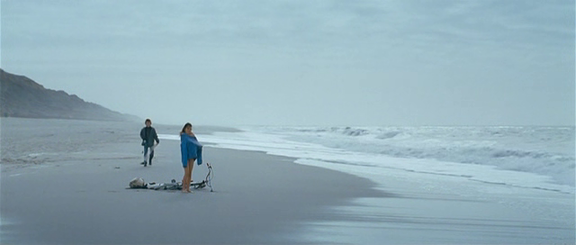 While on vacation at an isolated beach property, Rebecca befriends Thomas. While the two of them are very young, they have an instant connection but eventually their time together fades, as Rebecca leaves to live in Tokyo with her mother. After 15-20 years pass, Rebecca and Thomas find themselves united, becoming instant lovers. Tragedy strikes when Thomas is accidentally killed by a motorist which drives Rebecca to contemplate suicide. She finds consolation in the idea of cloning Matt back to life but society as a whole hasn't fully accepted the idea of human cloning, which leads to Rebecca and her re-born son, Thomas, ostracized. Benedek Fliegauf's Womb is the story of a cross-generational love that is as morally and emotionally complex as one could imagine. Rebecca's character is desperate to get back the connection she had with Thomas, going to extreme lengths to do so. Benedek Fliegauf is a skilled filmmaker, who creates a brooding atmosphere with his lens. Using lots of extremely wide angles and long-distance shots, Fliegauf captures the isolation and sadness which follows Rebecca throughout nearly the entire film. The setting of the film, a dreary seaside town, is a character in its own right, with the dark blue skies and mist-filled landscapes adding to the atmosphere while capturing our main protagonists point-of-view. From a technical standpoint there really isn't much wrong with Womb but unfortunately the same can't be said for the narrative. How Rebecca and Thomas meet as young children is an incredibly important piece, capturing this instant bond, yet I do think the filmmakers should have made them a little older. I believe doing this would have created more of an emotional impact on the viewer as I myself had trouble believing the two of them could fall in love so quickly after rekindling such a young childhood romance. The script just doesn't seem to have much to say, oddly enough relying too much on the visuals to say almost everything of merit. The other main problem I had with Womb is that it just felt sluggish, making it hard for the viewer to connect on an emotional level for long stretches of the film. Some of this certainly could be attributed to the taboo concept in general, but I did feel that the film hit lulls mainly in the middle. Eva Green gives a great performance as Rebecca, a woman whose tortured by her past mistakes and what the future holds. She deftly balances her desire for the lost love of her life with her maternal responsibilities, giving added depth to the character. Benedek Fliegauf's Womb is a fascinating concept, exploring themes of love, bigotry, and maternity, and while it's far from perfect it's a unique and interesting film. 7/10 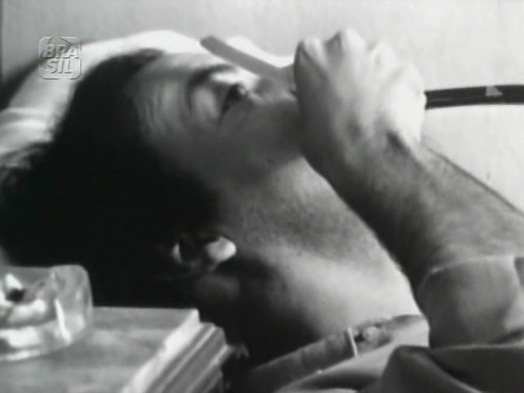 On a day like any other, a young man who lives with his elderly parents in a middle-class apartment in Rio de Ganeiro, calmly kills them both with a razor-blade for no apparent reason. Seemingly unaffected by what he has done, he goes to a movie theater to watch 'Lost in Love'. The film on the screen involves the story of two young woman who spend time together in a beautiful country house where they find friendship turning into something more like love. Julio Bressane's Killed The Family And Went To The Movies is a film defying all narrative conventions, as fact and fiction, imagination and reality, blend together with no clear designation between what is happening on the screen and in our main character's world. The stories overflow their restraints, and Bressane uses every trick in the book (fragmented storytelling, dialog improvisation, jagged editing, juxtaposition,etc) to create a challenging but incredibly interesting experience. The film's structure feels musical, in that its rhythmic yet uneven with scenes that are resonant and others that seem superfluous. While watching the film I struggled at times to grasp exactly what Bressane was trying to say, but the film is no doubt loaded with interesting subtext. While the girls on screen share a loving and tender story overall, the film is littered with abrupt violence. I questioned if the violence-fueled outbursts which take over portions of the film were merely a viewpoint into the warped perception of the man watching the movie. I also wondered if this juxtaposition is merely used to capture both the darkness and light of life itself, showing how they are constantly intertwined. Honestly I could be reading into the film too much, but this is precisely why I found it so enjoyable, its ability to make the viewer question what they are watching and form their own conclusions. Like most experimental films, Julio Bressane's Killed The Family And Went To The Movies alternates between impactful and frustrating, boring and hypnotic, profound and brainless, but there is no denying its artistic merits as it makes the viewer think about an abundance of different things. 8.25/10 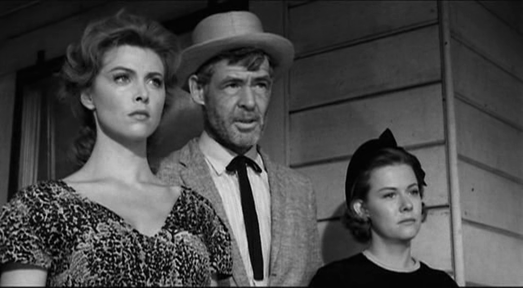 Ever since his grandpa's death fifteen years ago, Ty Ty and his two sons, Buck and Shaw, have been digging holes on their farm in search for gold. A cotton farmer originally, Ty Ty Walden believes his grandfather buried a cache of gold on the family farm. Doing all of this in the name of god, Ty Ty gets rather lenient with what is his property, deeming it God's Little Acre with anything that comes from the ground going towards God's work. While Ty Ty Walden digs around for gold, his daughters and son's clash among themselves with an affair between his son-in-law Bill and daughter-in-law Griselda being the highlight. Anthony Mann's God's Little Acre is a thematically dense piece of storytelling that touches on the south's crumbling way of life, isolation, bigotry, materialism, and lust among others. Ty Ty Walden is a man who is blinded by his beliefs, searcing endlessly for this buried gold, unable to except the truth. His family has become incredibly poor due to his long search, but instead of resorting to his craft of cotton picking he follows his blind beliefs, as they constantly shift to fit his own needs. He is a shining example of human frailty, constantly convincing himself that he is getting close to the fortune no matter how many dead ends arise. The film also seems to want to capture the plight of the South's economic means. The dilapidated country lifestyle where industry and money have long since vanished is another major aspect of the film. The town around them feels barren and empty and there is a small but important subplot showing Bill's desperate attempts to seize control of and reopen the textile mill on which the entire local economy depends. The family dynamics of Warden's family are unstable to say the least, with Ty Ty single-handedly raising three hot headed sons and a daughter. No one in this group feels truly stable but the relevant relationship is between Bill and Griselda, a woman who appears irresistible to every man she encounters. The sexual entanglements and betrayals ultimately lead to tragedy and the destruction of the family entirely. Anthony Mann's God's Little Acre is a thematically sprawling tale touching on many issues, and while I can't say I fully grasped everything he was trying to say, this is a film that deserves a lot more credit and respect then it gets. 8.75/10 |
AuthorLove of all things cinema brought me here. Archives
June 2023
|
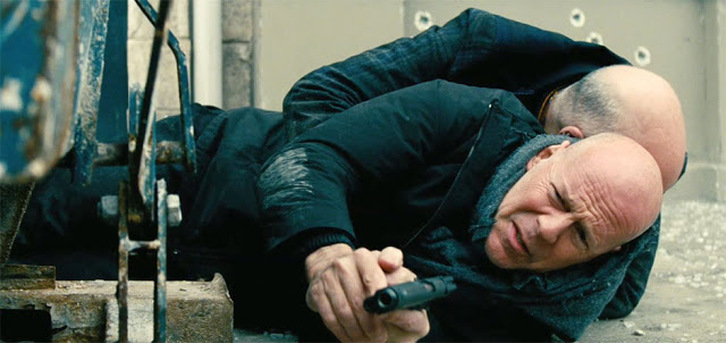
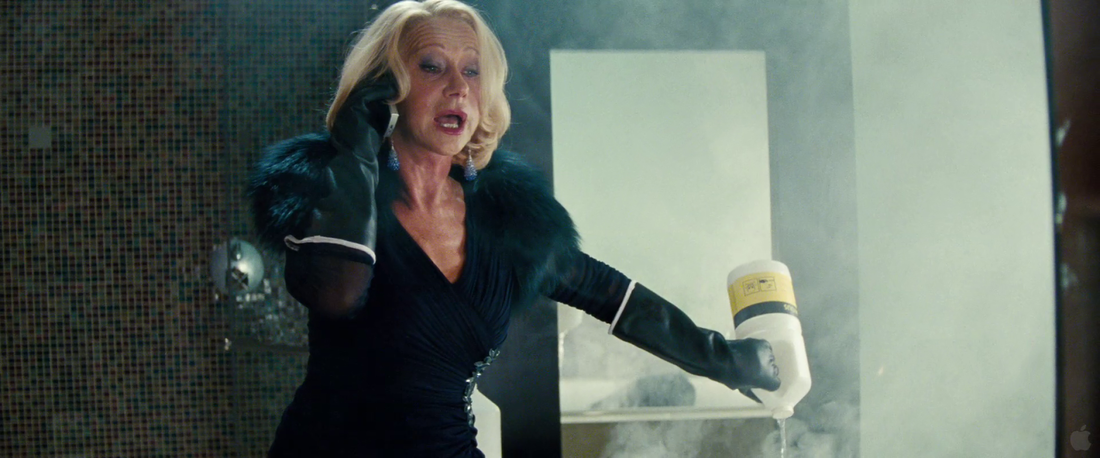
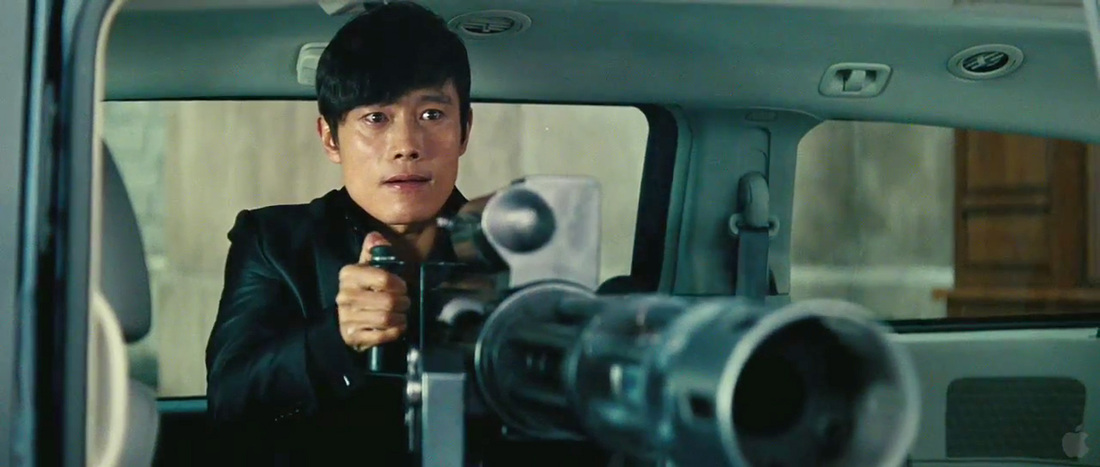
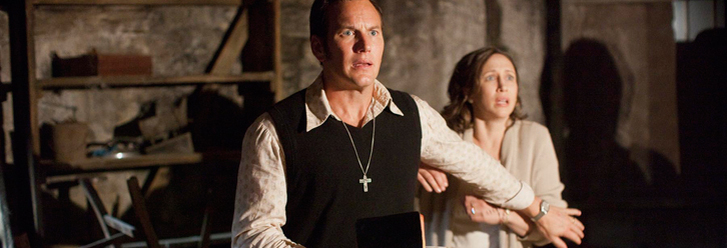
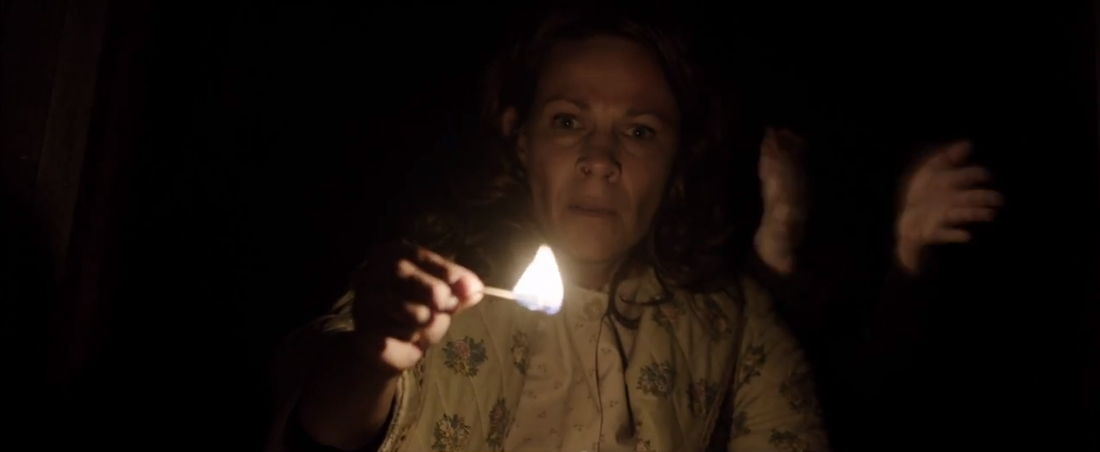
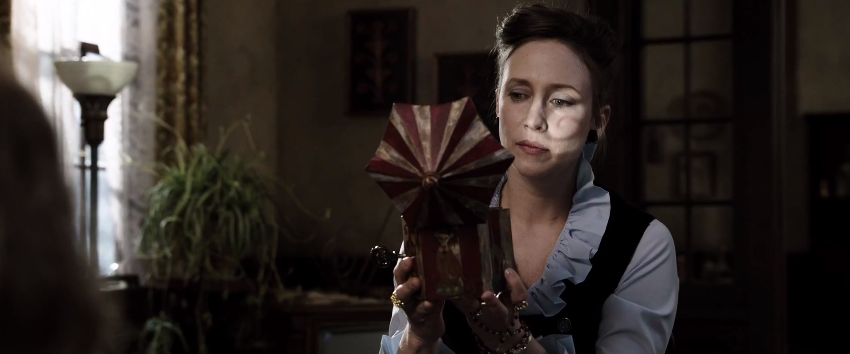
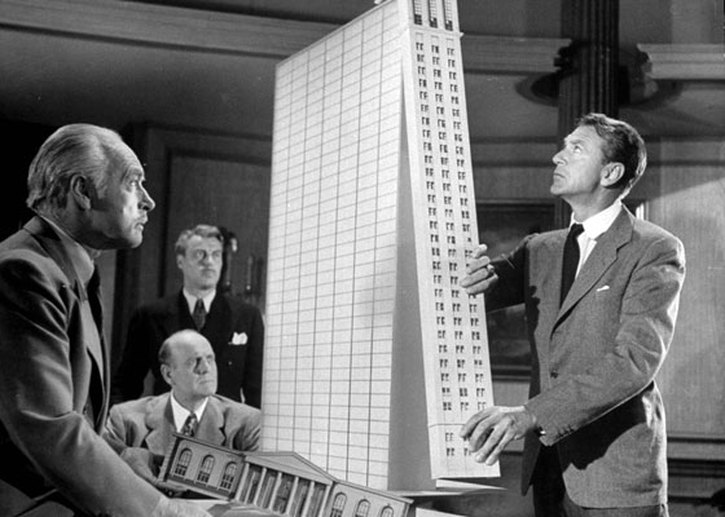
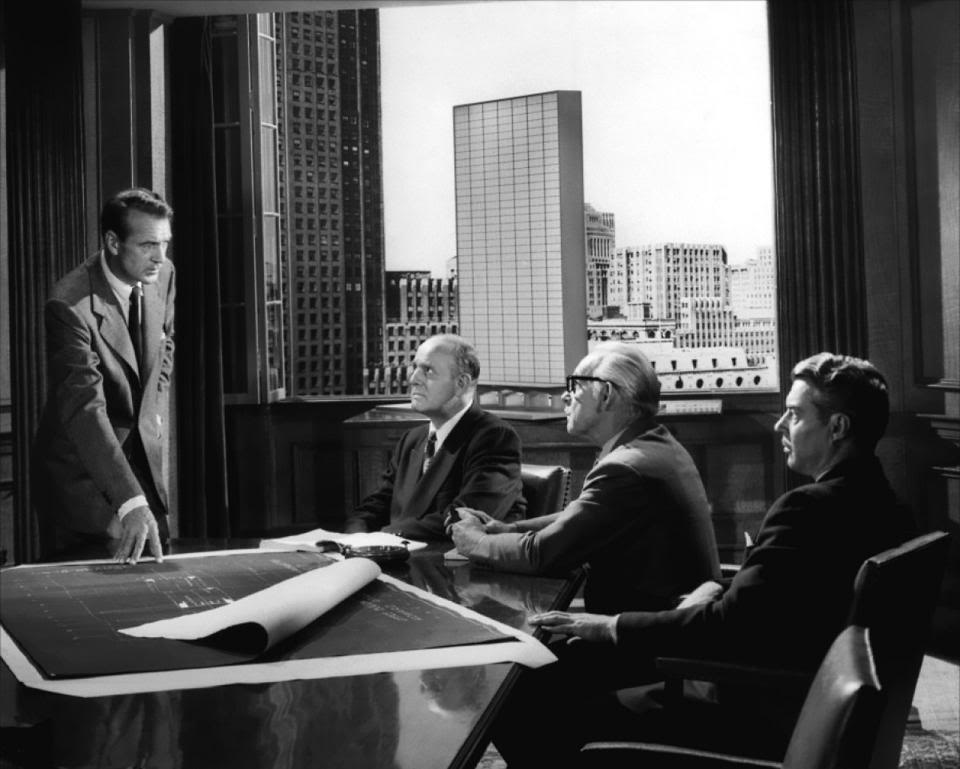
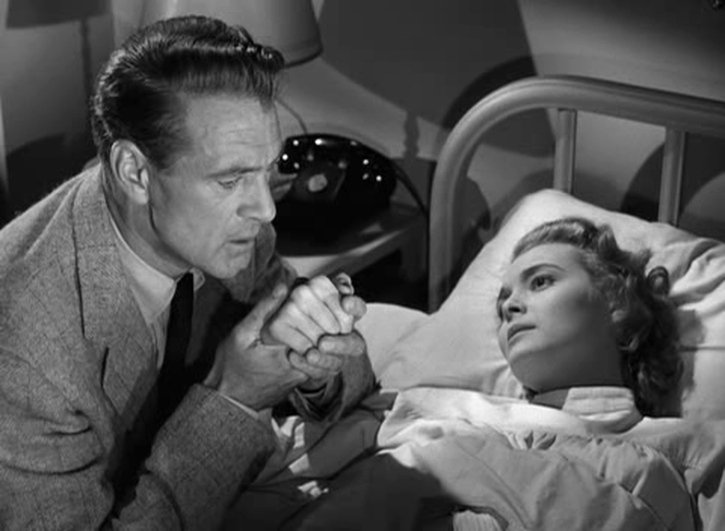
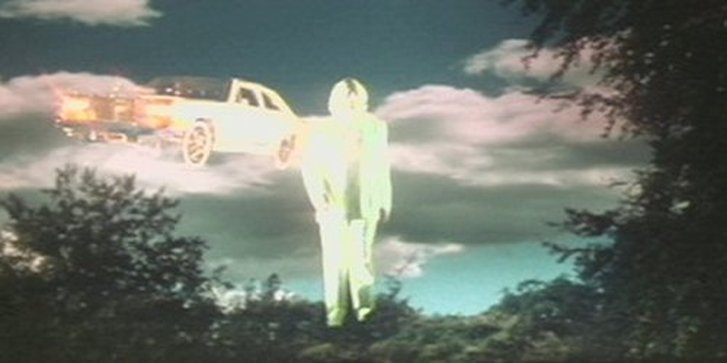
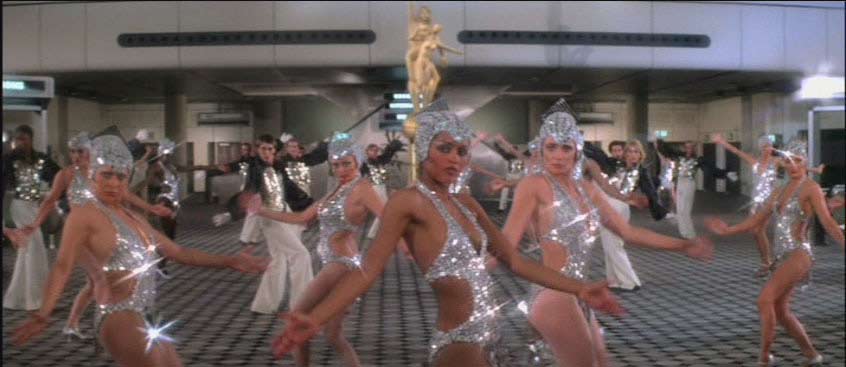
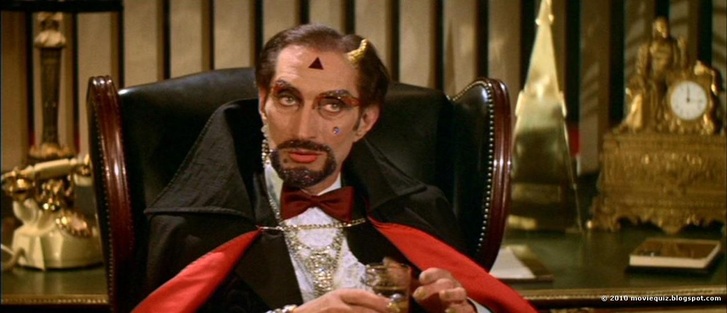
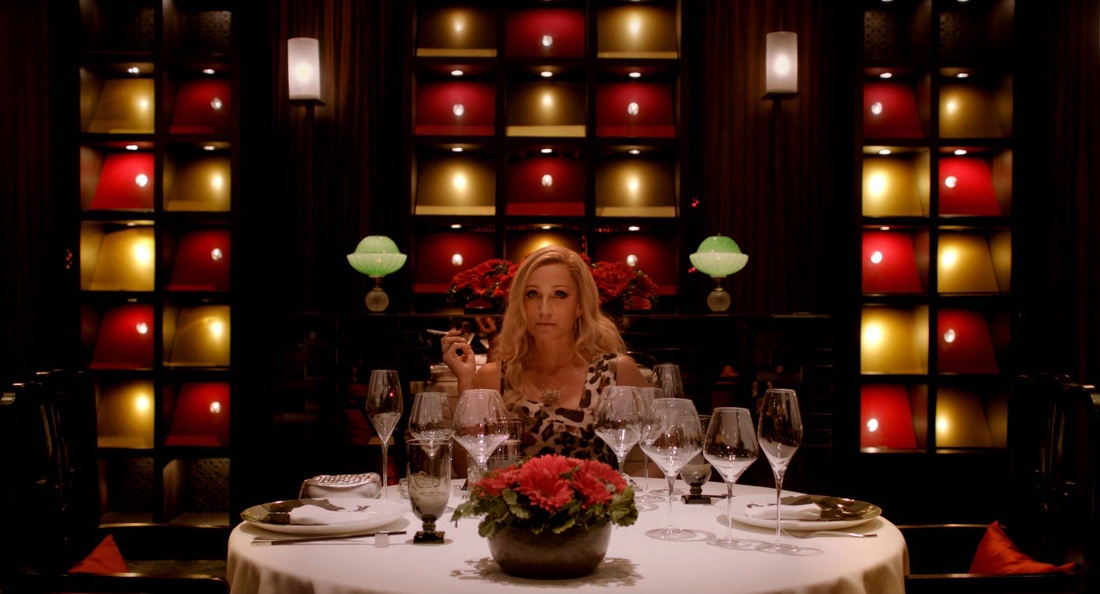
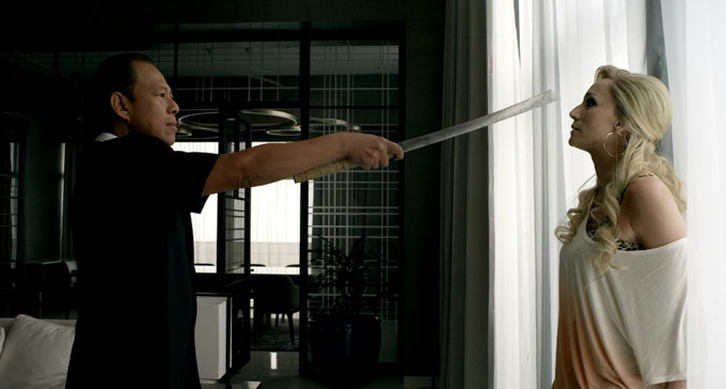
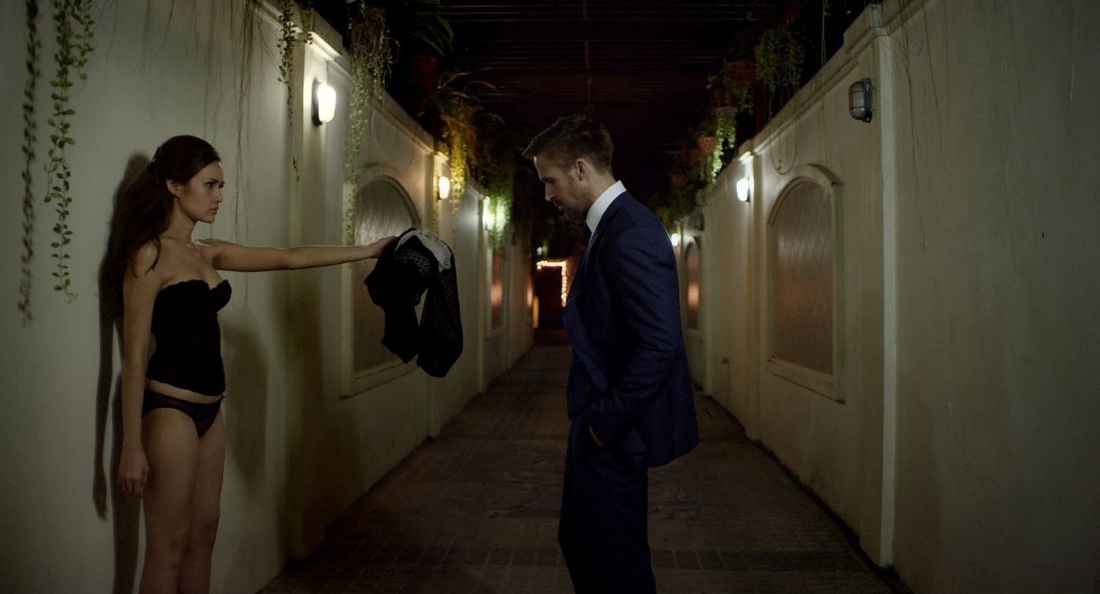
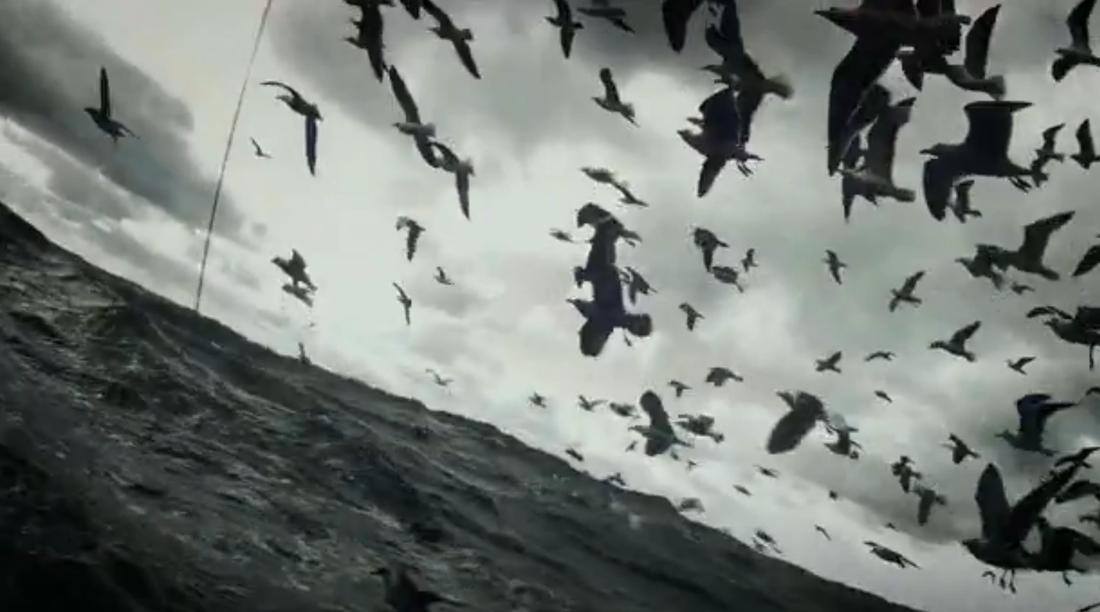
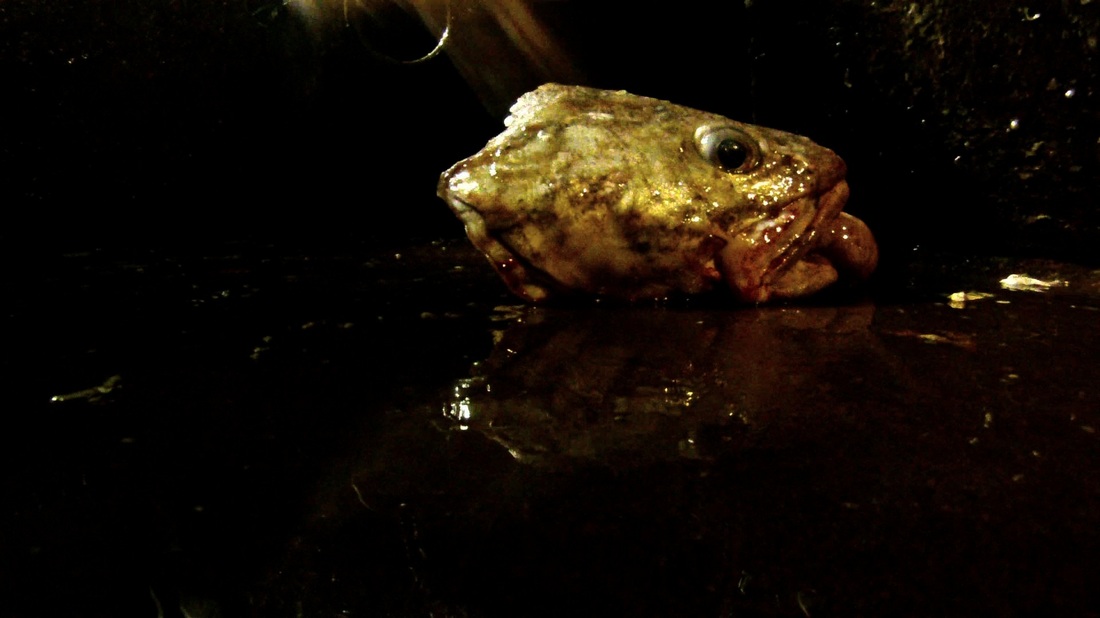
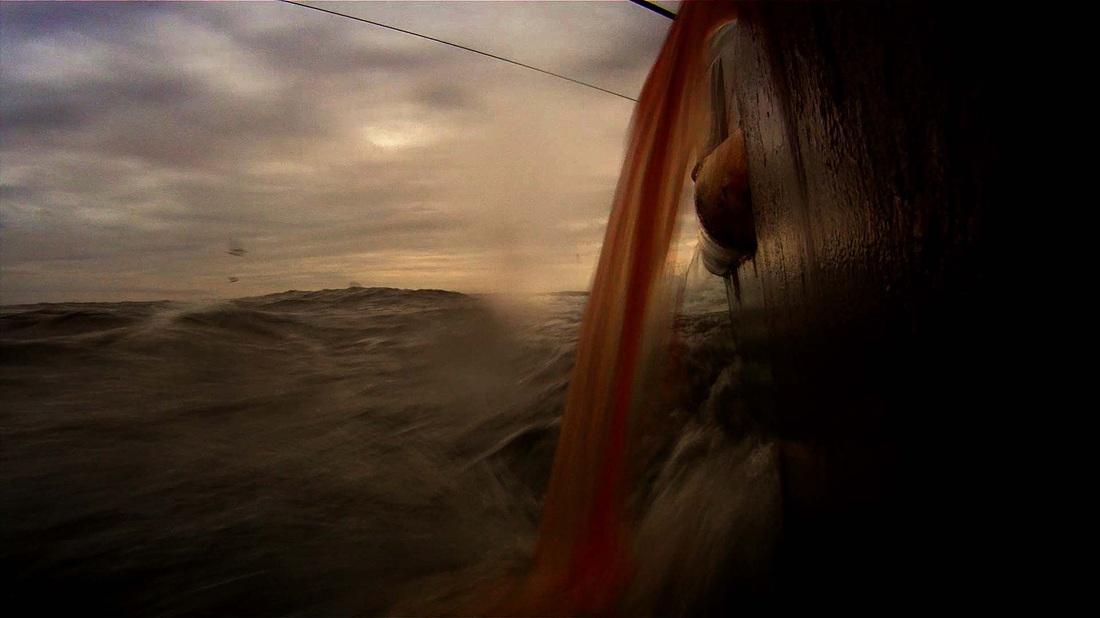
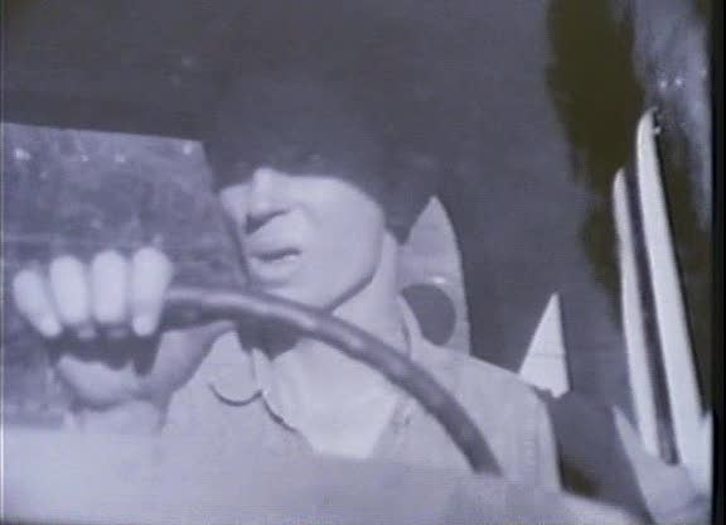

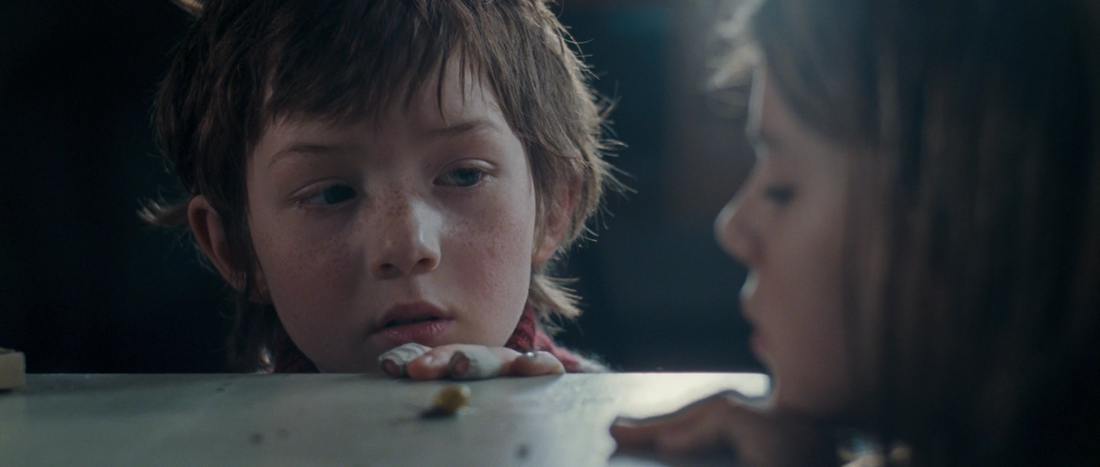
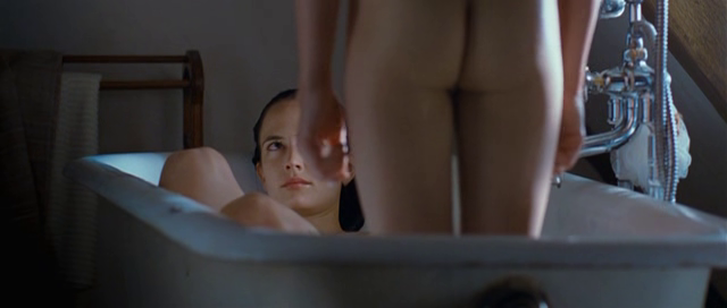
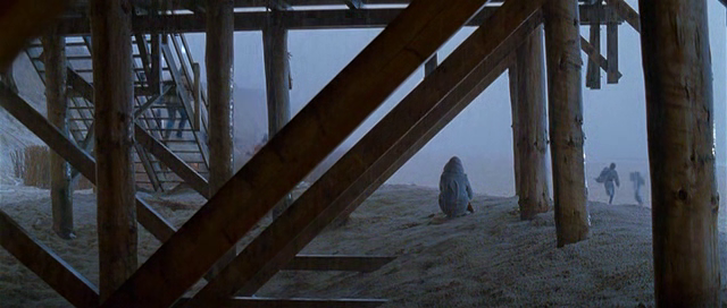
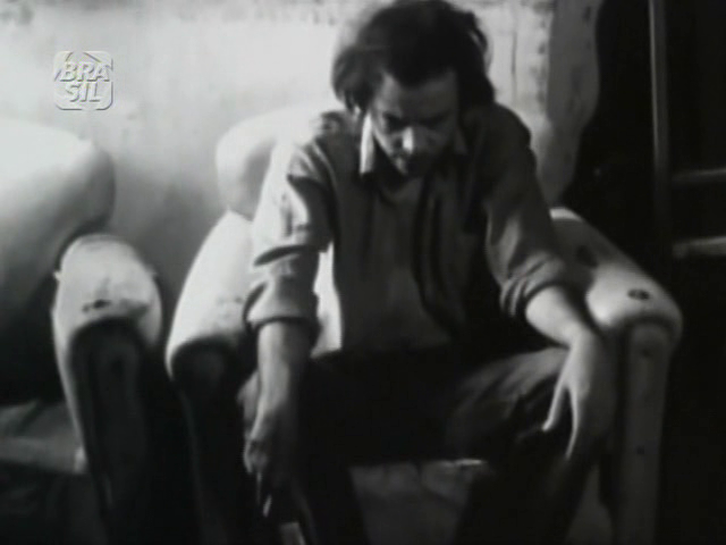
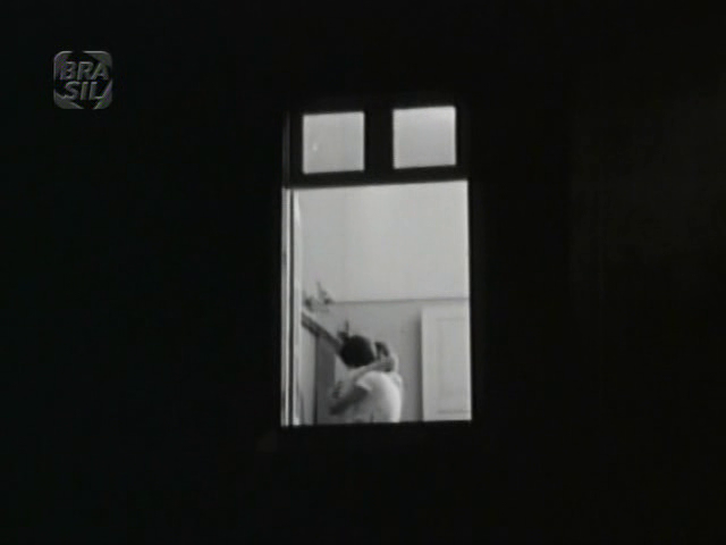
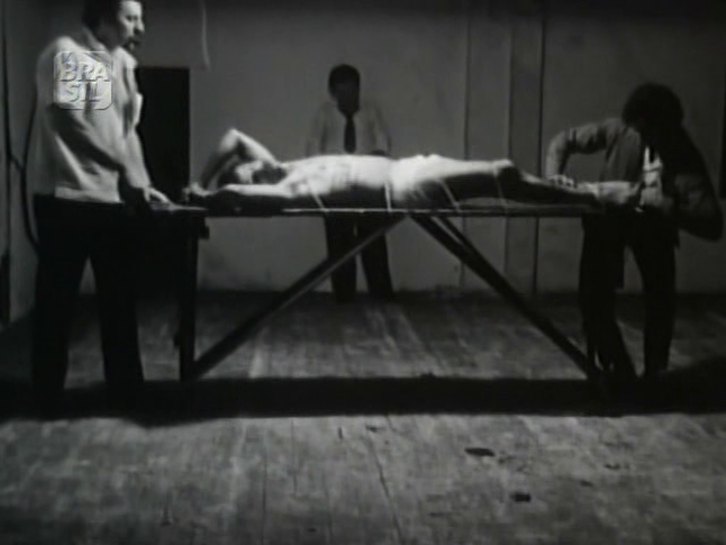
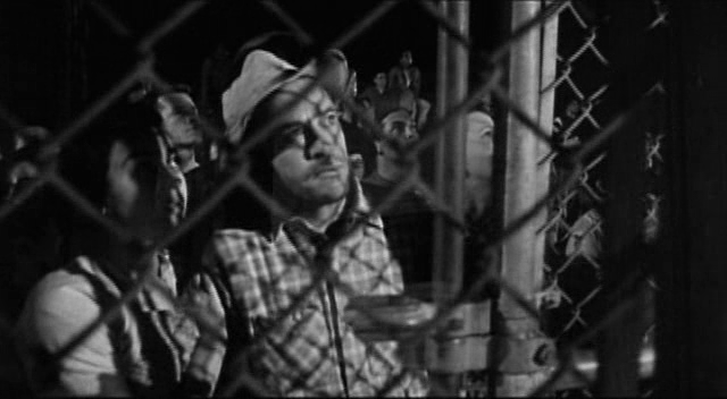
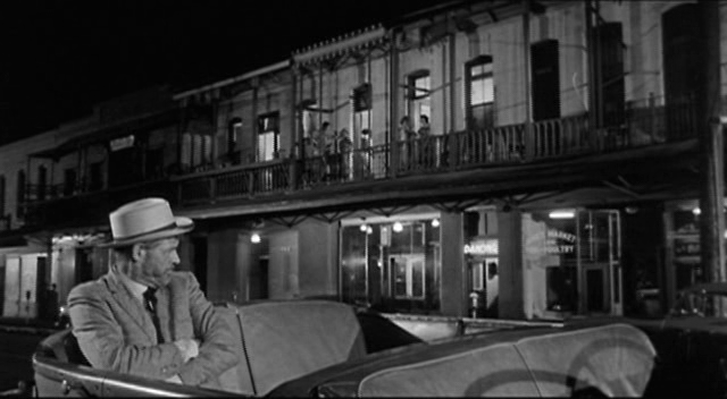
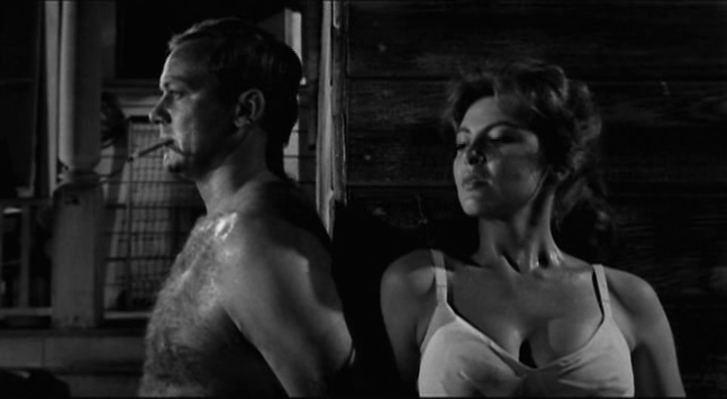
 RSS Feed
RSS Feed
